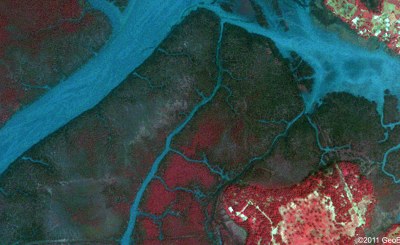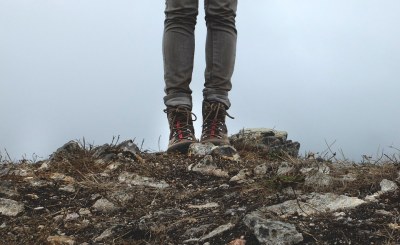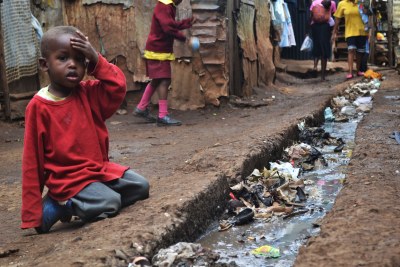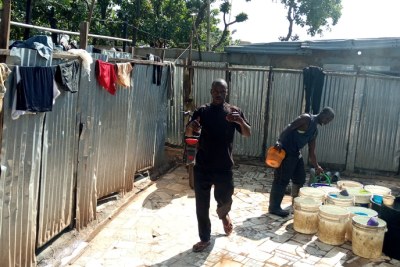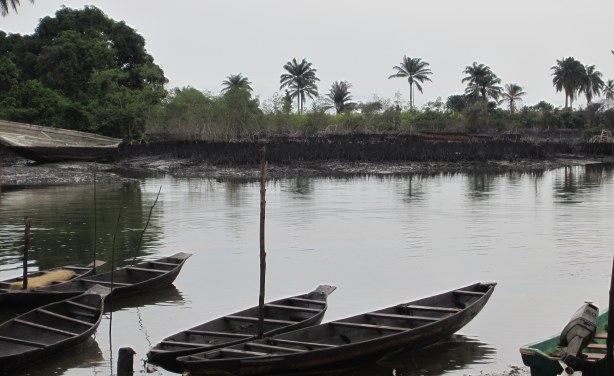-
Nigeria: Oil Hazards Aren't the Main Worry of Nigeria's Coastal Residents - Toilets Are
The Conversation Africa, 24 May 2022
Nigeria's coastal areas are known to present environmental hazards and risks. Oil exploration and exploitation is one source of these hazards. Oil spillage, gas flaring, air and… Read more »
-
Nigeria: Endless Oil Spills Blacken Ogoniland's Prospects
ISS, 24 March 2022
Slow action by Nigeria's government threatens livelihoods and the environment as spillages outpace clean-up efforts. Read more »
-
Nigeria: 46 Million Nigerians Still Practice Open Defecation - UNICEF
This Day, 22 November 2021
As the world celebrated 2021 World Toilet Day (WTD) on November 19, UNICEF has decried the staggering figure of over 46 million Nigerians that are still practicing open defecation. Read more »
-
Nigeria: Groups Ask Shell to Stop Oil Extraction in Nigeria
Vanguard, 25 May 2022
Africa Network for Environment and Economic Justice, ANEEJ, in collaboration with several other Climate Justice Activist groups and the people of Niger Delta, have called on Shell… Read more »
Oil Hazards Not the Main Worry For Nigeria's Coastal Residents
Nigeria's coastal areas are known to face environmental hazards and risks. Oil exploration and exploitation are but some of the sources of these hazards. Oil spillage, gas flaring, air and water pollution, and agricultural land contamination are serious problems in the region, with implications for human and environmental health.
Some Niger Delta residents are less concerned about oil-induced hazards and risks, or floods and erosion. They are more worried about a lack of sanitation amenities like drains and toilets. They perceive oil and flood risks as being normal parts of their lives, not as major risks.
Poor sanitation practices, poor location of facilities like toilets and kitchens, and the contamination of water sources in oil-producing communities, expose residents to cholera, typhoid, malaria, and dysentery.
According to UNICEF, the rate of open defecation in Nigeria has remained steady at 23%. As many as 46 million Nigerians still defecate in the open. Government and NGOs should provide environmental education for residents of the coastal towns. Residents need to know about the inherent harmful impacts of unsanitary environments and poor amenities. Education could be done through the media and the school curriculum, writes Seun Olowoporoku for The Conversation.
InFocus
-
Nigerians face the threat of an epidemic as indications show that in less than two months the country may top the global list for open defecation. At least 24% of Nigeria's ... Read more »
-
In a bid to end open defecation in Nigeria by 2025, President Muhammadu Buhari has launched a national programme tagged: "Clean Nigeria: Use the Toilet". The campaign aims to ... Read more »

